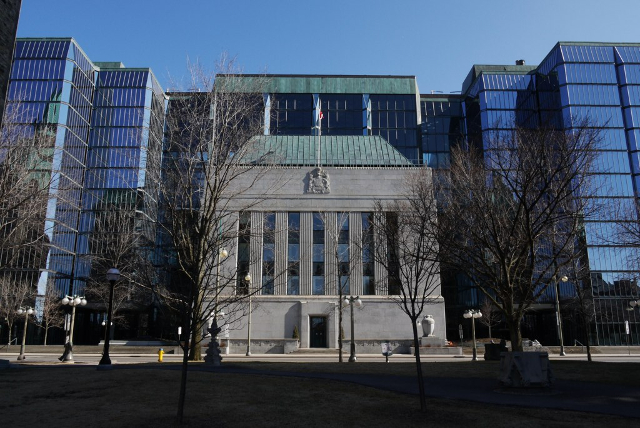In our most recent market update to clients and my regular interview with Kirk Lapointe on Monday, I explained that the Bank of Canada needs to start talking about normalizing interest rates, because the economy is now growing and the rationale for having ultra low rates is evaporating. Indeed, we saw insiders anticipate the recovery in Western Canada during last fall's rebalancing of the INK Canadian Insider Index when the index make-up tilted towards Energy and Canadian retail names.
Going a bit further than what we had time for in our discussion and our report to clients, I can point to three key reasons why Bank of Canada can no longer remain so dovish:
- Inflation is on target - 2%
- The Bank of Canada's only meaningful measure of core inflation is at 1.9%
- Canadian housing is at risk of a full blown boom-bust cycle
The current Bank of Canada overnight rate of 0.5% is an emergency measure put in place to respond to a perceived deflationary threat of the 2014 oil price collapse. Those cuts were on top of the series of emergency cuts made in wake of the 2008 and 2009 great financial crisis. However, in 2017 there is no threat of deflation in Canada despite the Bank of Canada governor's claims to the contrary. Since 2010, Canada's annual calendar year CPI has been within its target range in every year except 2013. During that 2010 to 2016 post recession period, calendar CPI has ranged between 0.9% and 2.9%. There simply is no deflation crisis.

Rationale for dithering is evaporating at the Bank of Canada
In any event, it is a grave error for the central bank to focus strictly on consumer price inflation at the expense of inflating risks in other areas of the economy. There is at least one global voice who is sounding the alarm as well. In his book The Rise and Fall of Nations, Ruchir Sharma who is the chief global strategist at Morgan Stanley Investment Management argues:
The Fed now leads a global culture of central bankers who see their job as stabilizing prices, but for consumer goods only, come what may in the asset markets. This needs to change.
Poloz apologists will say his mandate is to target 2% inflation and not housing. That is nonsense. The Bank of Canada Act makes clear the duty of the central bank's governor: to promote the economic and financial welfare of Canada.
Moreover, what about the governor's drive through the export corn patch? Since day one on the job he has been touting the need to boost exports. Low rates and clobbering the currency have been his key tools. Of course, he and his followers will say it is to promote inflation by closing the output gap, a nebulous concept that really only exists in the hard drives at 234 Wellington Street in Ottawa (output gap theory is broadly defined as the difference between actual economic output and Canada's economic potential - a positive gap means we are producing more than our non-inflationary potential can handle).
But I can play the output gap game too. It is obvious that the real estate output gap in Canada's financial centre is now positive. It is obviously positive in Vancouver. If Governor Poloz sits on his hands and dithers much longer, it will soon be positive in Calgary and Regina as speculators return (sorry, Mr. Poloz, interest rates do matter to speculators). To cool markets, politicians will offer up macro-prudential measures, an approach which has an unimpressive track record. These measures will likely fail as they are no substitute for sound monetary policy. With multiple cities experiencing positive real estate output gaps, Canada would risk a complete and utter boom-bust real estate inferno. A fire could easily start when mortgage rates rise, either due to domestic or external factors. That could precipitate a major deflation as many households experience a combination of real estate losses and saddling debts.
By waiting to normalize rates like the Bank of Japan did in the mid 80s, Stephen Poloz is risking a major Canadian household wipeout. At that point, no amount of interest rate cuts or QE will save us.
Just ask Mr. Haruhiko Kuroda.
Listen to the Kirk Lapointe interview here. Image by D. Neuman from Ottawa, Canada via Wikimedia Commons.

No Comments